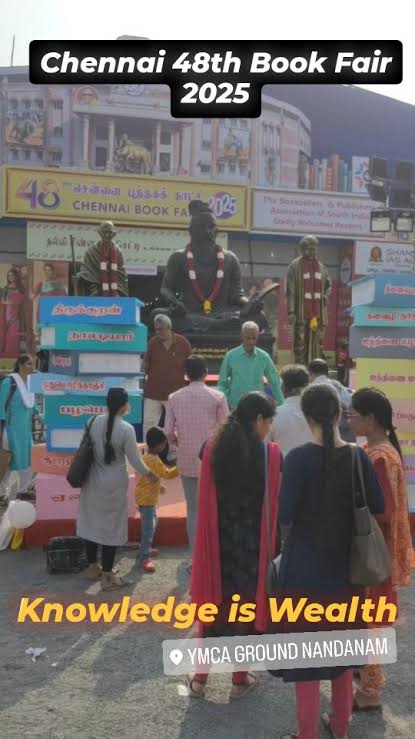My takeaways from Viduthalai 2
Viduthalai 2 was one of the most expected films of this year. The movie’s predecessor set high standards for this film. This is not a ‘review’ or ‘criticism’ about the film from my side, but a brief note on my takeaways from the film. Firstly, the film’s protagonist, ‘Vaathiyaar’, actually satisfies his alias, since he keeps lecturing to the audience about various ideologies throughout the film. While I found the arguments and opinions that were expressed in this film intriguing, it would take me some time and a rewatch to comprehend those. This is actually not what an average Vetrimaaran fan expects from him, since he is known for ‘showing’ and not ‘telling’ the audience. In this film, Vetrimaaran ‘tells’ a lot. A problem I found, with fully comprehending these lectures on ideologies were the synchronization issues between the dialogues and visuals. Of course, these are recurring issues in a Vetrimaaran film. He is known to keep changing and improvising dialogues in his movies even after the completion of filming. The director recently admitted to doing a dubbing session with the lead actor prior to two days of the film’s release in an interview. In other films of the director, the dubbing or the lip-sync issues didn’t matter much to me, since they were driven by visuals, and the dialogues were complementing to that. In his previous films, the director used dialogues only to express the characters’ emotions. But with this film, the director has attempted to express the whole concept and soul of the movie through dialogues. Therefore, I was unable to focus on the dialogues owing to the confusion of whether I should focus on the dialogues or the visuals.
Vetrimaaran has recently become more direct in his political approach to films, starting from ‘Asuran’. From Asuran, it could be seen that the director focuses less on narrative aesthetics and more on political clarity. A filmmaker and writer, who had weaved such a compelling narrative in ‘Vada Chennai’ and ‘Aadukalam’, had resorted to much simpler narratives for the past three films. There has been a lot of criticism on the film from the time it got released, owing to its overstuffed ideologies. The film suffers from the same problem that T.J. Gnanavel’s ‘Vettaiyan’ and Pa. Ranjith’s ‘Natchathiram Nagargiradhu’ suffered. There has been an overdose of information and political theories. Coincidentally, the narrative of Viduthalai (both parts combined) reminds me of the narrative of the Lokesh Kanagaraj film ‘Vikram’, with Soori replacing Fahadh Faasil and VJS replacing Kamal Haasan. In both these films, the first half is carried forward by a secondary protagonist, who introduces us to the primary protagonist and his backdrop. During the second half of the narrative, the primary protagonist takes full charge and at the end, the secondary protagonist, who was so far in the opposition, in some way, empathizes with the primary protagonist and turns against his own fraternity. And moreover, I found the latter halves of both these films underwhelming (no offense😅) But one could not say that Vetrimaaran, like other masterclass directors, has ‘exhausted’ his creative energies. With the climax of Viduthalai 2, the director finishes off the franchise in his signature style: with a gripping and impactful ending.
It should be noted here that, Vetrimaaran took the unfinished version of the film (both parts combined) to be screened in the Rotterdam Film Festival and received standing ovation from the audience there. The version, which we have watched in the theaters, is just one version of the film. The director has 1 hour of the movie left for us to view. I feel, it’s just this version of the edit that we don’t like. After all, it’s the director’s creative call on which he wants for his audience to view. Maybe, Vetri would have felt that it is important for the ideologies to reach his audience more than the story.
But apart from the political theories and ideologies that the film talks about, one of the key takeaways for me from this film comes in the form of a casual conversation between Perumal (VJS) and his mentor KK (Kishore).
*This is a mild spoiler*
KK, the leader of the Communist Movement, assigns a job for Perumal. Perumal is unsure of whether he would be able to pull it off or not. But upon KK’s urging, Perumal obliges. Perumal succeeds in his assignment, and thanks KK for trusting in him. KK tells Perumal that, one cannot keep contemplating if it is possible to act on or do something. One just has to plunge oneself into the act. The dialogue, which lasts for hardly a minute, stresses on the necessity to do something regardless of the doubts of ‘ability’.



Comments
Post a Comment